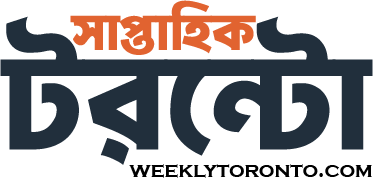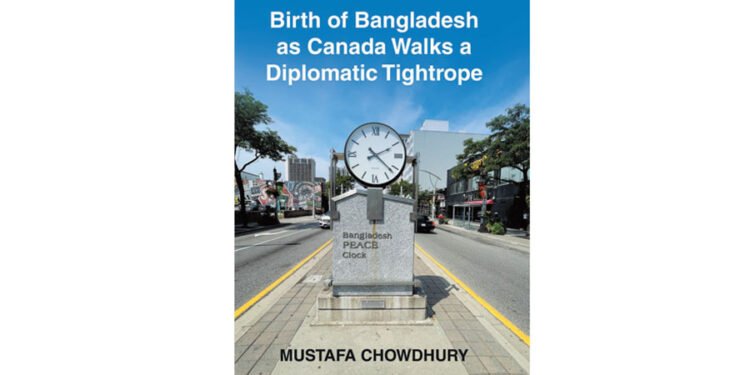The period under study is the crisis period, beginning with the military crackdown of 25 March 1971 and ending with the surrender of the Pakistani army on 16 December 1971. This study focuses on the activities of the government of Canada, Canadian NGOs, Canadian media, and the people of Canada. It outlines Canada’s support for assisting the victims of the military crackdown, as well as Canada’s mediatory role and finally, the demonstration of their respective positions with regard to the conflict, which involved the military government of President Aga Muhammed Yahya Khan, the Provisional Government of Bangladesh and the government of India.
Canada was inextricably bound up with her own collective historical experiences. The initial reaction of the Canadian government is difficult to characterize in any specific terms. Unlike the Nixon administration, which was openly in favor of the Pakistani military government of President Yahya, the government headed by Pierre Elliott Trudeau procrastinated due to Canada’s foreign policy constraints. As the continued military reprisals resulted in the exodus of millions of Bengalis, the people of Canada began to pressure the government to express its position in clearer terms. With assistance from the Canadian High Commissioners to Pakistan and India, the external affairs minister Mitchell Sharp and his team members began to focus on the events as they unfolded in the Indian subcontinent. Members of Parliament (MP) began to challenge the government, demanding that it be more transparent in its public position to represent the wishes of Canadians.
In the House of Commons, the government was barraged with a series of questions: was the military take-over and crackdown a violation of the democratic rights of the people of Pakistan? Should the process of democracy be upheld under all circumstances? Should President Yahya continue his military reprisals in East Pakistan since the integrity of Pakistan was at stake? Should power be transferred to the elected leader of East Pakistan regardless of what the military government thought of the majority party’s leader? There were no clear answers to these questions since the declaration of the independence of Bangladesh by the rebel forces, and the formation of the Provisional Government of Bangladesh in India by then had already created yet another new twist in the complex issue regarding the transfer of power to the leader of East Pakistan. Amid the domestic crisis, what was India’s role? Was India dragged into the crisis due to the influx of refugees? What role should Canada play as a senior member of the Commonwealth for the two Commonwealth sisters who had been at war since the 1947 partition of India?
At that time, the Trudeau government was trying to cope with one of its crucial problems in its own backyard – le crise d’octobre de 1970. The government was still assessing the impact of the proclamation of the War Measures Act following the FLQ (Front de liberation du Québec) crisis of 1970. As a result, it was doubly careful to condemn the intervention of the central government of Pakistan in its “internal affair.” At times, Canada was convinced that the expanding dimension of the human tragedy was much deeper than it had appeared. At another time, the Trudeau administration believed that when one looked at the issue from a humanitarian perspective, any intervention under the circumstances would perhaps have been regarded as legitimate. Canada was placed between the devil and the deep blue sea, especially when she saw how debates around the world were continuing immediately following the exodus of millions of Bengalis to India within a span of a few months. Whether or not the conflict in Pakistan still remained an “internal affair” of Pakistan appeared as a tough question for the Trudeau administration to address.
External Affairs officials faced many behind-the-scenes questions without apparent answers for the Ottawa Mandarins: How long could the government maintain its notion of “neutrality?” At what point does a “domestic affair” become an “international affair?” How many millions of Bengalis have to flee their homeland to take refuge in India so that the international community may get its act together? These were difficult questions for the Trudeau administration throughout the Liberation War.
Ottawa watched how the people of East Pakistani origin took to the streets across Canada as soon as they heard about the sudden and surreptitious military crackdown. There were reports of clashes between the groups condemning the atrocities perpetrated by the West Pakistani army and the groups interpreting the military crackdown as a necessary evil to establish law and order. As the gory details of the news of the massacre and wanton destruction began to filter in, the Canadian media started to play a more significant role both in raising awareness and molding opinion in favor of an independent Bangladesh.
Throughout the nine long months of the struggle for the independence of Bangladesh, Canada maintained her position of “neutrality,” although clearly, there had been occasions when she became involved both actively and passively. Again, there were occasions when Canada’s actions, or lack thereof, could not be explained in a linear manner as one needs to find answers to a host of related questions to understand the Canadian perspective vis-à-vis the Pakistan-Bangladesh conflict.
In this book, I have documented Canada’s role in the War of Liberation by examining government and non-government documents available in Canadian depositories. It advances the view that Canada, having no strong ties of strategic interests in Pakistan or India, had a sympathetic understanding of the two main parties involved – the military government of President Yahya and the democratic right of the people of Pakistan represented by Sheikh Mujibur Rahman, prime minister-designate. Relying on both pro-Pakistani and pro-Bangladeshi sources of information, the cumulative effect of the factual information gathered from overseas allowed Canada to appreciate the psychological and emotional dimension of the conflict stemming from economic disparity and political discrimination in Pakistan. Canada saw how two key concepts, “freedom” and “future,” remained in the minds of Pakistan’s military administrators and politicians. With quite a bit of discomfort, Ottawa opted to follow the drama ever since it started to play with the destiny of the Bengalis. In the final analysis, seeing the situation of the Bengalis as a gripping story of human suffering and a story of denial of the democratic rights of the people of Pakistan, Canada chose not to be a spectator but a player to do her best while still adhering to her foreign policy of “non-intervention.”
The book is slated for publication in January 2025 by Bloomington-based Xlibris in the USA and in February 2025 by Wyoming-based Gotham Books in the USA. To obtain a copy, don’t hesitate to contact the author directly.
Mustafa Chowdhury has authored the following books: (1) ’71-er Judhoshishu: Obidito Itihash; (2) UNCONDITIONAL LOVE: Story of 1971 War Babies; (3) Picking Up the Pieces: 1971 War Babies’ Odyssey from Bangladesh to Canada.
email: Mustafa.chowdhury49@gmail.com






















